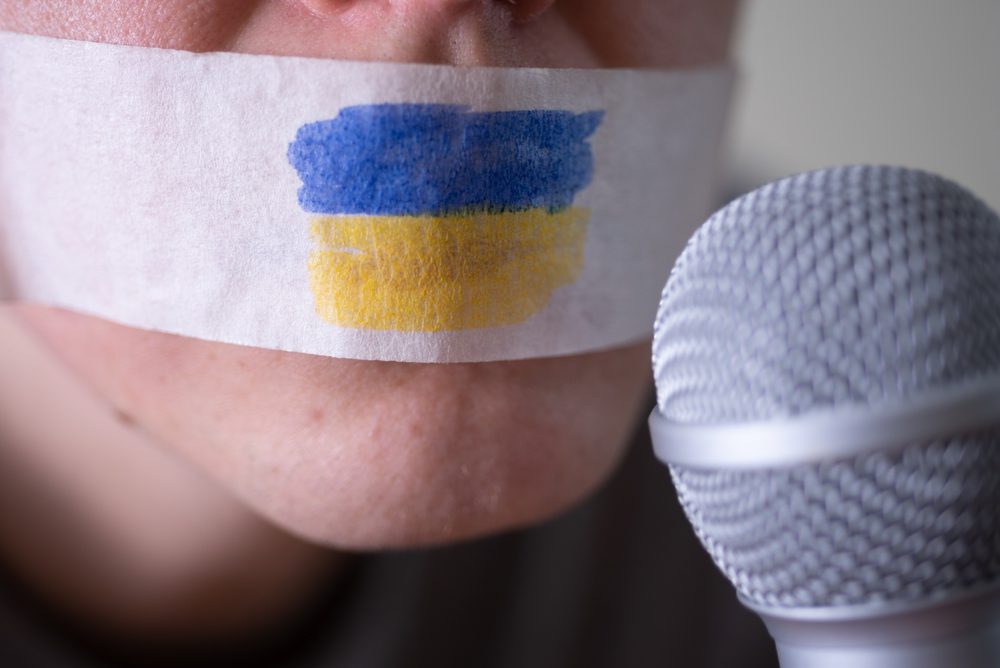The International Federation of Journalists (IFJ), together with its European branch (EFJ), is calling on the EU to apply pressure on Kyiv so it will reassess its controversial Media Law.
In a January 17th press release, the Brussels-based IFJ, which represents 600,000 media professionals in more than 140 countries, said it had received alarming reports from Ukrainian journalists.
They claim the 279-page legislation, which saw approval on December 29th, 2022, threatens media freedom in their country. Through the law, the government’s regulatory power over news media would be expanded, they argue.
According to the statement, various representative trade unions of Ukrainian journalists, such as the National Union of Journalists of Ukraine (NUJU), the Independent Media Trade Union of Ukraine (IMTUU), and the National Association of Media of Ukraine are denouncing “multiple problematic provisions, starting with the political dependence of the state regulator and the widening of the spectrum of extrajudicial sanctions against the media.”
The state media regulator is the National Television and Radio Broadcasting Council—a constitutional body which, IFJ argues, “obviously falls under the total control of Ukrainian authorities.” This body, it says, has the power “to regulate print and online media, as well as internet, television, radio, and online platforms such as YouTube and social networks.” Additionally, it has “the right to fine media outlets, revoke their licenses, and temporarily block certain publications without a court ruling.”
IFJ President Dominique Pradalié warned that
media freedom and pluralism are in danger in Ukraine under the new media law, which could create systemic problems for democracy in the country, as it expands the state control over the media. It is very important for Ukrainians, who are suffering from a terrible war, to be able to rely on credible information.
Pradalié concluded that “there can be no democracy without independent journalism and a free press.”
#Ukraine
— IFJ (@IFJGlobal) January 17, 2023: "Media freedom and pluralism are in danger in Ukraine under the new media law" says IFJ president @DomPradalie. With @EFJEUROPE we call on the EU to convince Ukraine to reform the law @nsju_org @profspilka_nmpu https://t.co/hOXqcLTQsm
At the time the bill became law, Ukrainian president Volodymyr Zelensky was accused of censorship. Ukrainian authorities have steadfastly denied a reading of the move as a crackdown on press freedom.
Instead, they argue that the bill brings Ukrainian media regulations in line with EU law, one of the bloc’s prerequisites before negotiations can start on Ukraine’s accession. Furthermore, it would combat Russian propaganda during wartime.
The trend of significantly increased control over the nation’s media started in 2019. That year, the Zelensky government enacted a law that granted the National Television and Radio Broadcasting Council the power to issue licenses, conduct inspections, and impose sanctions on television and radio companies. Last March, following Russia’s invasion, Zelensky invoked martial law and signed a decree which combined the country’s national television channels into one single platform.
The move was then, and is still, viewed by critics as one which prevents alternative and anti-government viewpoints from having airtime.






